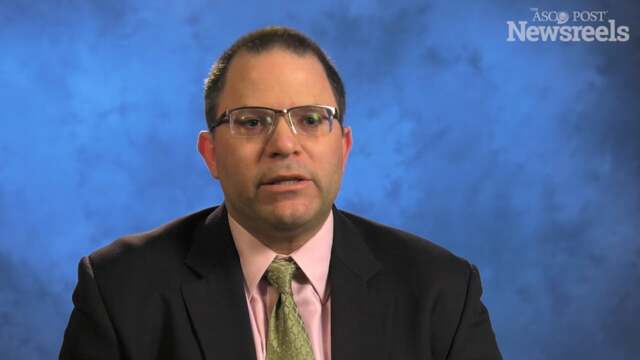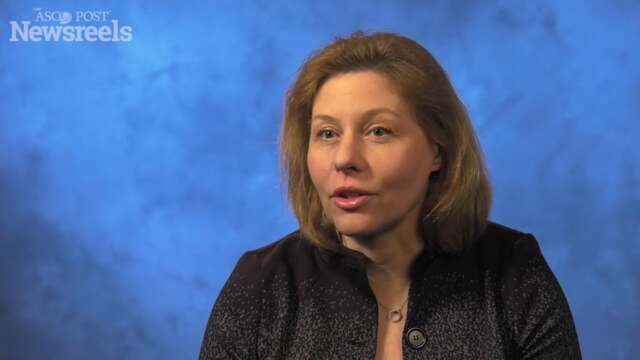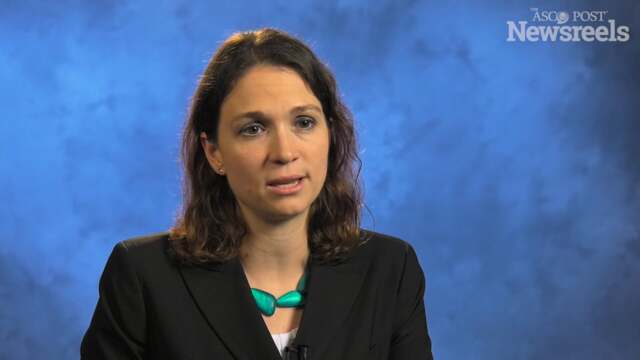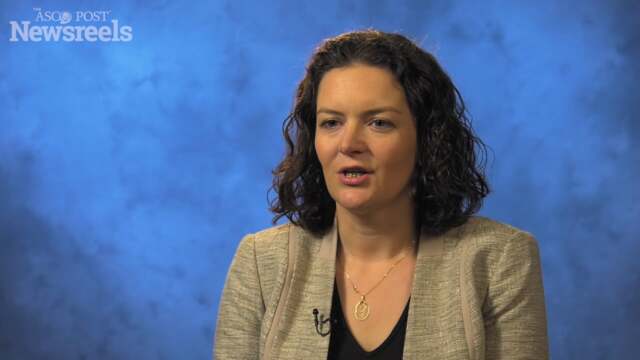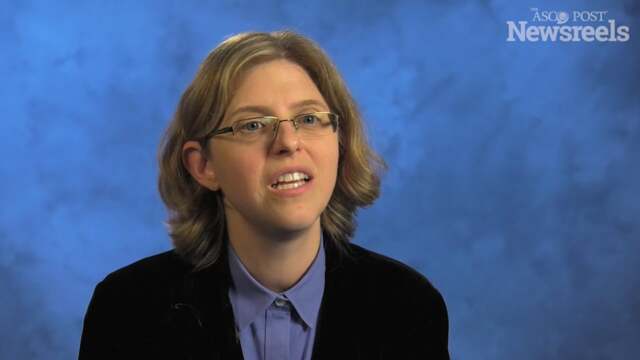Thomas J. Smith, MD, on Oral Abstract Session B (2017 Quality Care Symposium)
2017 Quality Care Symposium
Thomas J. Smith, MD, of the Sidney Kimmel Comprehensive Cancer Center at Johns Hopkins, summarizes two papers for which he was a discussant: reducing overuse of colony-stimulating factors without compromising the safety of patients with lung cancer receiving chemotherapy, and a cost-and-survival analysis before and after implementing Dana-Farber Clinical Pathways for patients with stage IV non–small cell lung cancer (Abstracts 3, 52).
Brian Weiss, MD, of Cincinnati Children’s Hospital Medical Center, discusses a program designed to eliminate errors in chemotherapy use among pediatric patients whose regimens incorporate multiple drugs and rigorous monitoring schedules (Abstract 37).
Nicole Mittmann, PhD, of the Sunnybrook Health Sciences Centre, discusses her study findings on transitioning breast cancer survivors to primary care and the savings in resources and dollars that accrued as a result (Abstract 1).
Gabrielle Rocque, MD, of the University of Alabama at Birmingham, discusses the challenges of implementing Oncology Care Model requirements, such as providing treatment plans, and the opportunities to transform practices with improved workflow and patient outcomes.
Julie Bryar Porter, MS, of Stanford Health Care, discusses an approach to improving patient care with physician-led quality measures from diagnosis through end of life implemented at her academic cancer center (Abstract 49).
Laura E. Panattoni, PhD, of the Fred Hutchinson Cancer Research Center, discusses results from a regional study on emergency department costs during cancer treatment and the need to focus on managing symptoms (Abstract 2).
